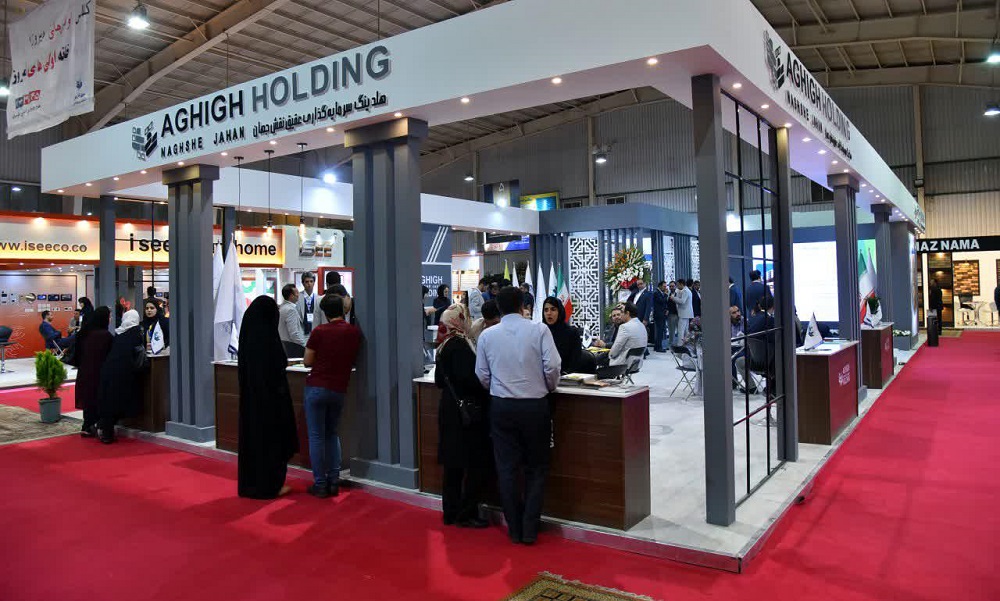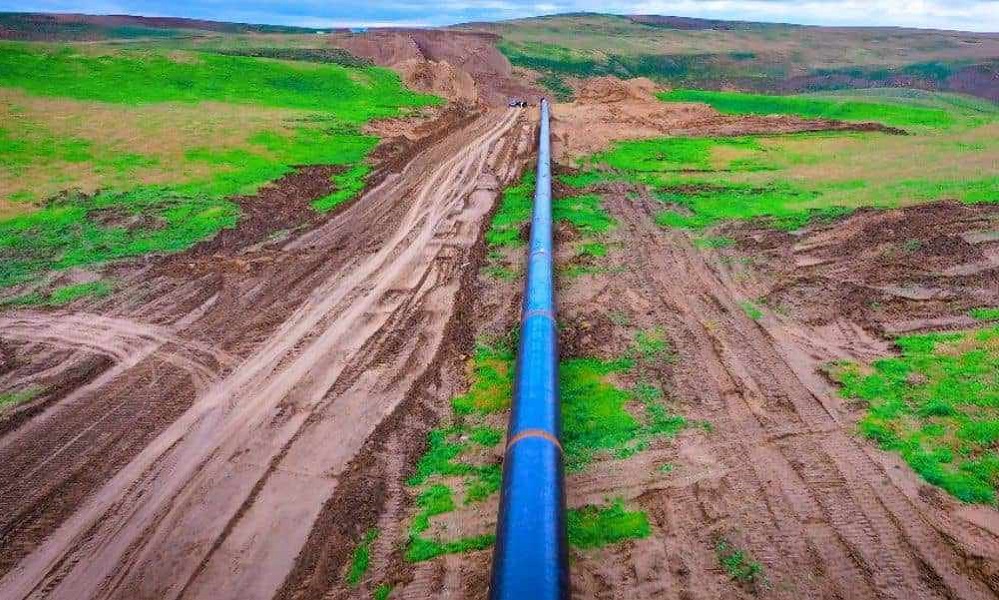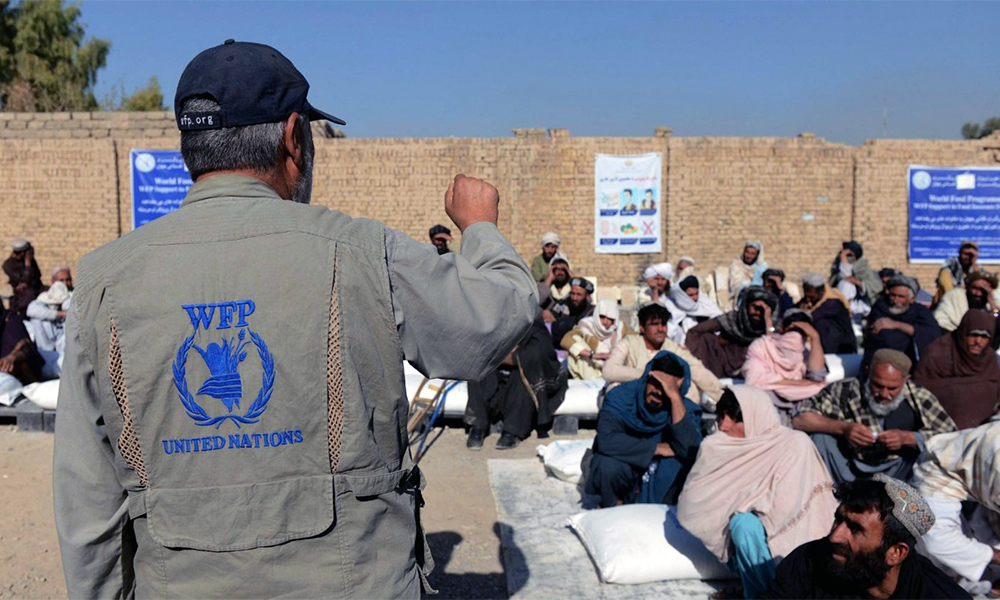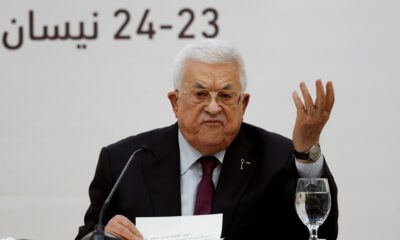Latest News
EU provides 13 million euros for malnutrition treatment and education in Afghanistan
Over 78,000 children in Afghanistan will benefit from additional funding for nutrition and Education in Emergencies from the European Union’s Civil Protection and Humanitarian Aid Operations (ECHO), UNICEF said in a statement.

The European Union has provided 13 million euros for malnutrition treatment and community-based education in Afghanistan, the United Nations’ children agency (UNICEF) announced Sunday.
Over 78,000 children in Afghanistan will benefit from additional funding for nutrition and Education in Emergencies from the European Union’s Civil Protection and Humanitarian Aid Operations (ECHO), UNICEF said in a statement.
With this €13 million contribution, UNICEF will procure 62,000 cartons of Ready-to-Use Therapeutic Food (RUTF) and train 1,600 health workers to treat severe acute malnutrition among children under five. Additionally, UNICEF will improve the quality of learning in 275 community-based education classes to enable 9,500 children (61 per cent girls) to access primary education.
In Afghanistan, 23.7 million people – over half of them children – require humanitarian assistance this year. In 2024, nearly 2.9 million children are expected to face acute malnutrition. More than 850,000 of them will need treatment for severe acute malnutrition – a life-threatening condition, UNICEF said.
Education in Afghanistan also remains in crisis. According to the 2023 Multiple Indicator Cluster Survey, more than half of children do not attend primary school.
“The malnutrition rates in Afghanistan – especially amongst children – show that Afghanistan is facing an emergency. The EU will continue to work with longstanding humanitarian partners like UNICEF to provide urgently needed support, including nutrition and education in emergencies. Even amidst one of the worst humanitarian crises in the world, children have the right to quality education that will help them build a better future,” said François Goemans, Head of EU humanitarian aid in Afghanistan.
The two-year intervention will target about 69,000 children under the age of five for malnutrition treatment across 27 provinces of Afghanistan. It will help nearly 9,500 children and adolescents in four provinces continue their education through community-based learning, developing foundational skills, including social and emotional competencies for positive psychological development. The project will also enable emergency teaching and learning supplies to be delivered to children in need across all 34 provinces.
“We appreciate the continued partnership with EU humanitarian aid, which will help us get RUTF into some of the nutrition treatment facilities where children are most in need and train the frontline health workers administering this treatment in communities,” said Dr. Tajudeen Oyewale, UNICEF Representative in Afghanistan. “This funding will also enable children to continue attending community-based education classes and provide the materials students and educators need for a successful classroom.”
In the past four years, EU humanitarian aid has allowed UNICEF to provide safe water systems, community-based education, life-saving child protection and health services, emergency cash transfers, and malnutrition treatment for children.
Latest News
Afghan delegation to participate in Iran’s international expo

Iranian officials have announced that a 200-member delegation, comprising Afghan government officials and private sector representatives, will attend the 7th International Exhibition of Iran’s Export Capabilities.
Officials from the Islamic Emirate, meanwhile, consider the presence of Afghan traders at this exhibition to be significant, stating that showcasing domestic products will help promote and market Afghan goods.
Abdul Latif Nazari, Deputy Minister of Economy, said: “Economic cooperation between the private and public sectors of Afghanistan and Iran is in the interest of both countries.”
“The visit of the high-ranking delegation of the Islamic Emirate to Iran can play a vital role in expanding economic and trade exchanges between the two countries,” he added.
In addition, Afghanistan Chamber of Commerce and Investment (ACCI) said that 80 booths have been allocated to Afghan traders at the exhibition, where agricultural products, precious stones, and other Afghan goods will be showcased.
Several experts also stated that Afghanistan’s participation in regional and international exhibitions is important and can lead to stronger economic ties with other countries.
This comes as Iran remains one of Afghanistan’s key economic partners, with annual trade volume between the two nations exceeding $3 billion.
Latest News
14 kms of TAPI pipeline laid inside Afghanistan, says project manager

Baganch Abdullayev, the General Director of the TAPI project in Afghanistan, on Thursday met with Noor Ahmad Islamjar, the governor of Herat, for a report back on progress made in accelerating the pipeline-laying process of the Turkmenistan-Afghanistan-Pakistan-India project in the province.
The Herat governor’s press office said in a statement that Abdullayev shared a brief report on the progress of the TAPI project with Islamjar.
According to the statement, Abdullayev said so far 14 kms of pipeline has been laid while an additional 24 kms of ground has been levelled for the pipeline.
During the meeting, the governor of Herat also welcomed the efforts of TAPI project officials in advancing the work and assured the project head of the local administration’s full support in facilitating the swift progress of the project.
Once completed, TAPI pipeline will transport natural gas from the Galkynysh Gas Field in Turkmenistan through Afghanistan into Pakistan and then to India.
The pipeline was completed on the Turkmenistan side in 2024, and the project is currently expanding southbound in Herat Province of Afghanistan.
Latest News
WFP appeals for $25 million to help support Afghan returnees amid humanitarian crisis

The World Food Programme (WFP) this week issued an urgent appeal for $25 million to address the escalating needs of Afghan refugees being expelled from Pakistan.
According to the WFP, thousands of Afghan families are crossing into Afghanistan from Pakistan every day and face serious food insecurity.
The organization also stated that millions in Afghanistan are grappling with severe hunger, and immediate aid of $25 million is needed to assist returnees.
On Wednesday, April 23, in a video shared on X, WFP’s head in Afghanistan, Mutinta Chimuka, visited the Torkham border crossing with Pakistan. During her visit, she highlighted the challenges faced by returnees, many of whom have spent their entire lives in Pakistan and are unfamiliar with Afghanistan.
Chimuka pointed out that many returnees have no income, employment, food, or shelter.
The WFP stressed that thousands of families are being forced to leave Pakistan, while 15 million people in Afghanistan are uncertain where their next meal will come from. The situation has become dire, with basic needs going unmet for a large portion of the population, the WFP said.
Chimuka warned that current aid efforts are insufficient to support the returnees, and new financial resources are urgently needed to address their needs by the end of the year.
Meanwhile, the pace of deportations and expulsions of Afghan migrants from neighboring countries, particularly Pakistan, continues to increase. The Pakistani Ministry of Interior reported that over 100,000 Afghan migrants have been returned since April 1.
The International Committee of the Red Cross (ICRC) has also raised alarm, noting that while thousands of refugees return every week, there are millions of Afghans who are currently facing poverty, homelessness, and difficult living conditions.
-

 World5 days ago
World5 days agoThousands of protesters rally against Trump across US
-

 Latest News5 days ago
Latest News5 days agoPolio vaccination campaign launched in Afghanistan
-

 International Sports3 days ago
International Sports3 days agoIPL 2025: Robo-Dog ‘Champak’ explained
-

 International Sports5 days ago
International Sports5 days agoIPL 2025: 14-year-old Vaibhav Suryavanshi becomes youngest IPL player
-

 Latest News4 days ago
Latest News4 days agoAriana Afghan Airlines increases flights to China
-

 World4 days ago
World4 days agoPentagon chief Hegseth shared sensitive Yemen war plans in second Signal chat, source says
-

 Latest News4 days ago
Latest News4 days agoChina invites various Afghan delegations to attend Shanghai forums
-

 Latest News3 days ago
Latest News3 days agoAfghan-American appointed to lead US policy on Afghanistan
























